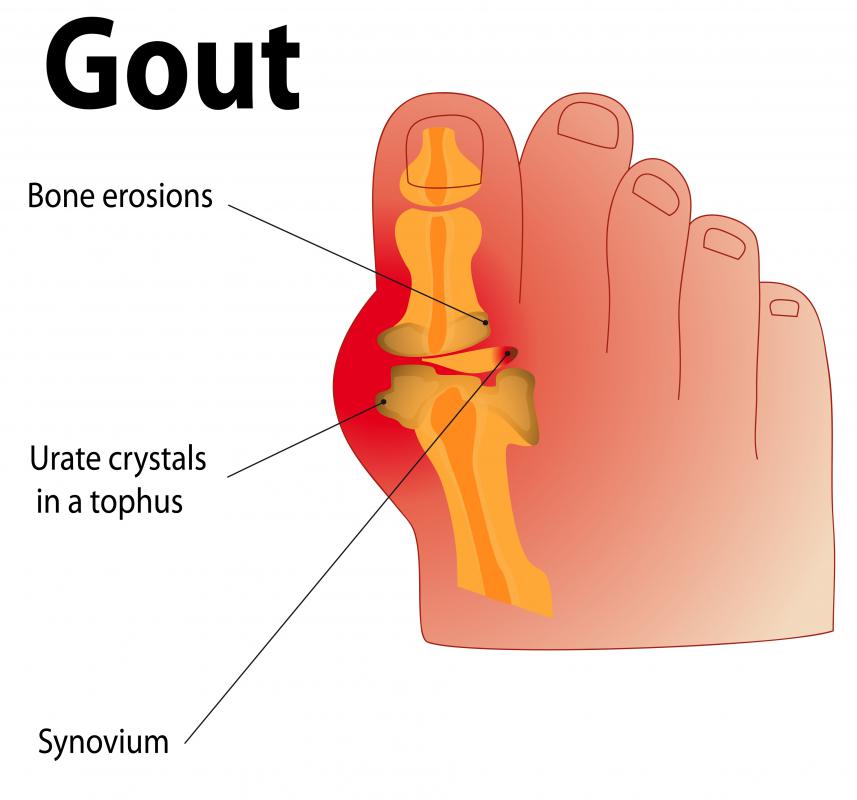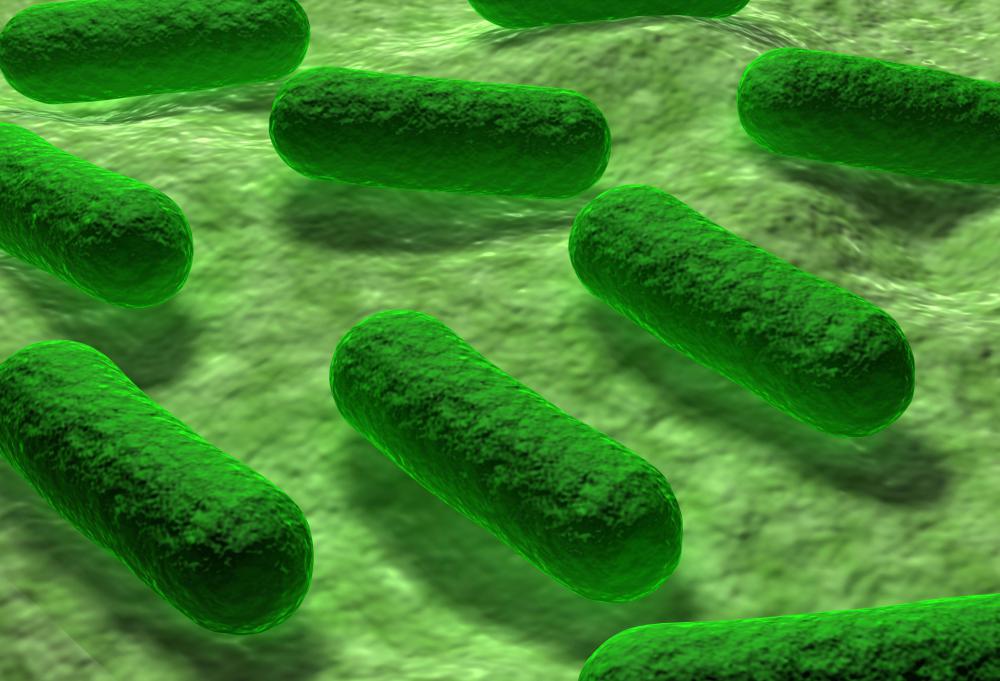At WiseGEEK, we're committed to delivering accurate, trustworthy information. Our expert-authored content is rigorously fact-checked and sourced from credible authorities. Discover how we uphold the highest standards in providing you with reliable knowledge.
What Is Pegloticase?
Pegloticase is a prescription medication used to treat a type of arthritis known as gout. Gout is a painful condition caused when uric acid crystals build up in the joints. The first line of treatment for gout is medication that will prevent uric acid from forming in the blood. For those patients who do not respond to traditional treatment, pegloticase is an enzyme that functions by converting uric acid to a molecule known as allantoin. Allantoin is water soluble and is easily excreted from the body.
Gout develops when uric acid levels in the blood serum increase beyond soluble levels. As uric acid reaches saturation levels in the blood, crystals form that settle in the fluid surrounding the joints. The joints then become inflamed, which is painful and may be disabling. Gout can develop in any joint, but most commonly appears in the big toe, foot, or ankle. Recurrent episodes of gout may lead to the formation of tophi or nodules in or around the joint.

Traditionally, physicians treat gout with the oral prescription medication allopurinol. Allopurinol acts by preventing the formation of uric acid, thereby reducing the concentrations in the blood. Some patients either cannot tolerate allopurinol or do not see a reduction in symptoms with this medication. Those patients may qualify for treatment with pegloticase.

Pegloticase is a genetically engineered form of the mammalian enzyme uricase. This enzyme is grown in the bacteria Escherichia coli and, after harvest, it is conjugated to the molecule monomethoxypolyethylene glycol (mPEG). Monomethoxy-PEG serves to keep the enzyme in the body longer to increase its effectiveness. Uricase acts to breakdown uric acid after it has formed.

Prior to administration of pegloticase, patients must have their serum uric acid levels measured. An acceptable level of uric acid in serum is 6 milligrams/deciliter (mg/dL) or less. If the patient has tried other medications and uric acid levels are still too high, the physician may prescribe pegloticase. This medication is administered by a health care professional and is given as an intravenous infusion over a two hour period. Patients usually receive a dose of 8 mg of pegloticase every two weeks.

There are some side effects following an infusion of pegloticase. Patients may experience an allergic reaction at the time of administration. There may also be an increase in symptoms of gout due to the release of uric acid from tissues. Physicians try to prevent these side effects by prescribing antihistamines and corticosteroids at least one week prior to injection.
AS FEATURED ON:
AS FEATURED ON:














Discuss this Article
Post your comments